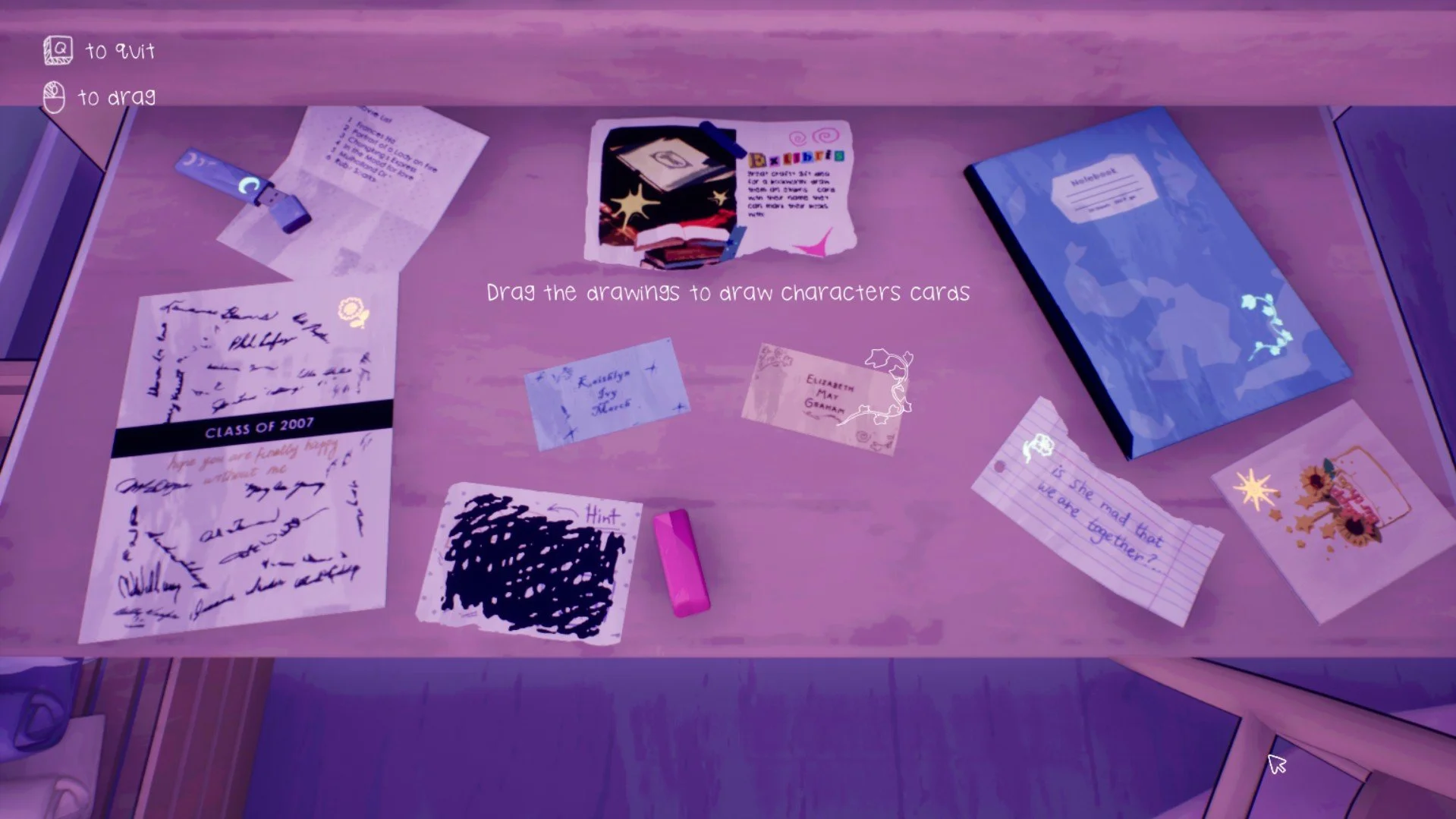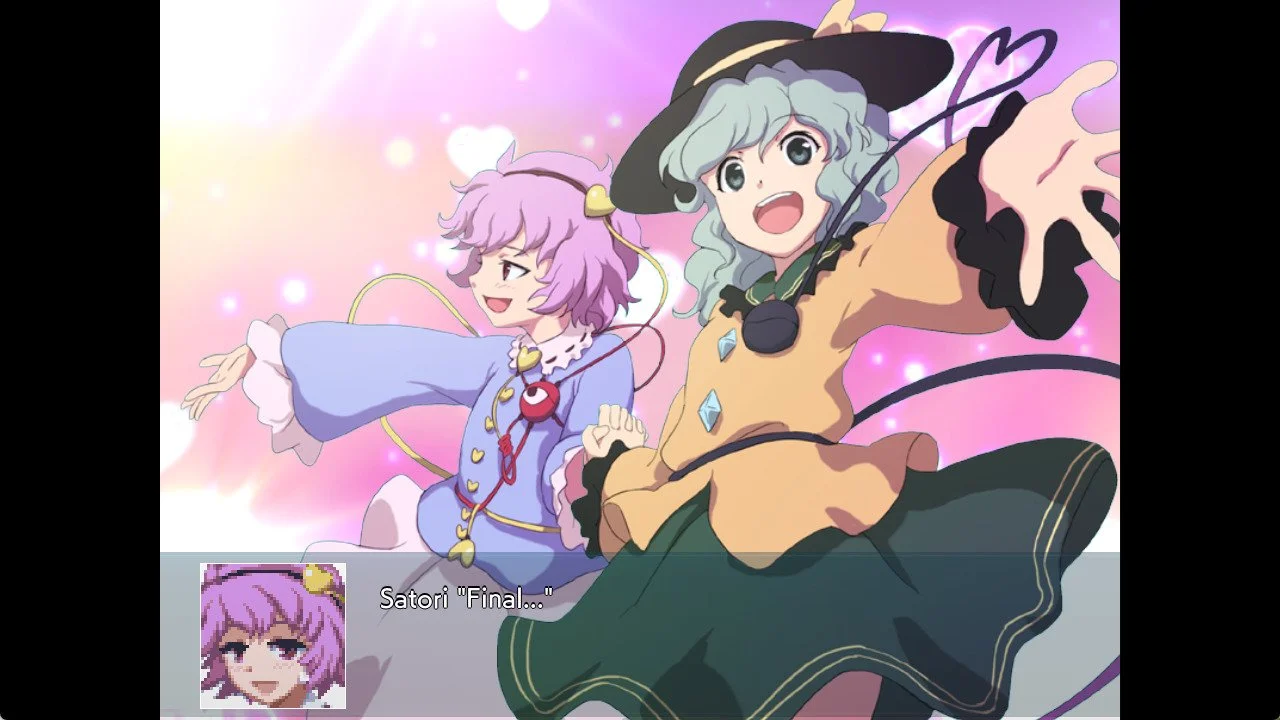Review: The August Before - Little to Digest
It is hard to be a(n assumed) teenage girl; even more so when you’re into other teenage girls, whether you’re in the middle of discovering this fact or well-acclimated to it already. I’m one of the lucky few to have been in those trenches, making out with cuties who didn’t actually like me that much and wishing for video game ladies to dip me sweetly under the light of the great big lesbian satellite in the night sky, and recently I’ve started to stumble upon a wealth of video games made for and by people who can sympathise.
The August Before, debut title of women-led studio Silly Little Games, is one of those. Billing itself a cozy 3D puzzler, it guides the player’s hand through the life and times of three ostensibly Pacific Northwestern teens forced to move on from each other as the titular August parts for university in Portland. What one can glean of their dynamic is dripping with romantic subtext: they want to move in together, “jokingly” propose to each other, use the four-letter L-word in reference to their feelings, the works.
And see, “gleaning” is the key pathway to any sort of story or characterisation going on here. These characters don’t meet outright, their connection shown only through letters and photographs and passed notes in class and other ephemera; the building blocks of the people they are must be found within each of their messy bedrooms, which they must tidy up for their own reasons, between moving out and sorting through the messes in their own minds.
The issue lies therein when the fine people at Silly Little Games lean too much on cultural shorthand to do the bulk of the work behind making August, Beth, and Ivy feel like real people. I am completely unsure of when in time The August Before is even supposed to be set — many things point to 2007, though one can encounter posters from 2015 games, arguments involving Taylor Swift albums dated 2020, and DVD jewel cases with anime movies released as late as 2024.
Sure, all of that media paints a clear picture of who they are — less anachronistically, a character keeps her copy of Perfect Blue under lock and key, along with a post-it reading “STOP REWATCHING IT!!” — but the real-world signposts muddle the setting. (It is also terribly lazy writing to just make me consult a list of bibliographical references in lieu of doing any character exposition that stands on its own. I shouldn’t have to do so much required reading for a 2- to 3-hour game, and you’re not giving me anything original to chew on. For the record, there was even more of this stuff in the demo; at least they’ve had the decency to cut some of it out.)
Gameplay-wise, the cleaning process is streamlined yet still manages to frustrate at turns. While some grace should be given to a novice team of modest size, it doesn’t change the fact that the systems often don’t work the way they were intended. Even after version 1.0 hit (I was forced to wait until release day to finish the game, since a certain bug stopped my progression dead in its tracks), things were clunky, sometimes uncertain; I never did learn where one character’s pick-up-able shampoo bottles were supposed to go in her apartment. The white outline that appears when you first grab an item, telling you where to place it, never deigned to visit me here.
Fittingly for a game about cleaning up, there is a lot of physicality to the levels. You can move chairs and stand on them, though it’s only required of you once. The soundtrack has to be manually set through cassette tapes and vinyl records, some of which end and make you have to do it all again, adding some realistic friction I’ll always advocate for in self-described “cozy” games. You have to look for all the clutter on your own, no highlighting vision allowed. The puzzles are minimally involved, which doesn’t make them any less about procedure. It’s still gamified — of course, it’s a game — but in a more grounded way than one may find in the sim genre.
Overall The August Before is much more about the mechanical experience than anything else. Play it if you like the burgeoning genre I call “busywork” — PowerWash Simulator, House Flipper, A Little to the Left, and most emblematic of all Unpacking — but don’t go into it expecting any sort of narrative depth, despite its claimed focus. While you’re able to get a good-ish sense of who these people are, I personally wasn’t assaulted by pathos the way I hoped to be, despite the deep ties I have to the very concept of Complicated Romantically-Charged Girlfriendship™. I’d say perhaps I’m getting too old to care about teen drama, but since a very similar title in premise caught my heart and mind this year, it might really be that this one isn’t worth its salt.








